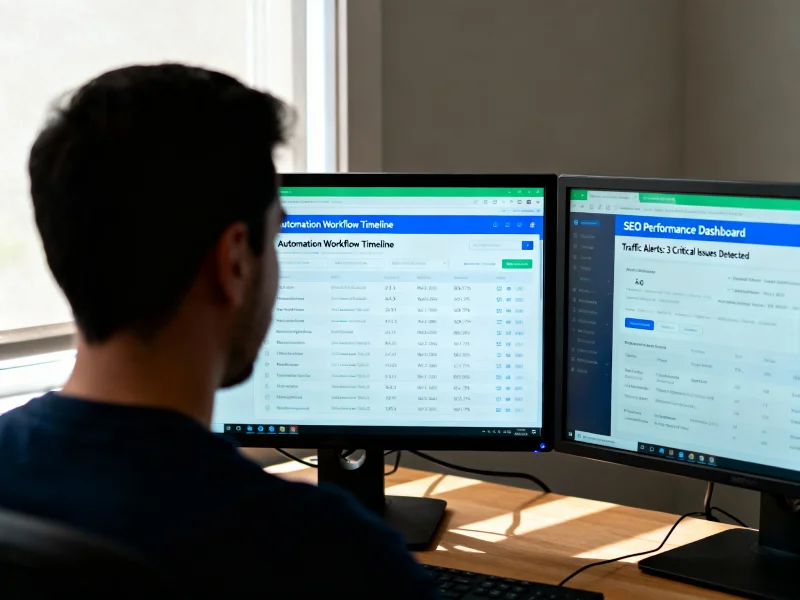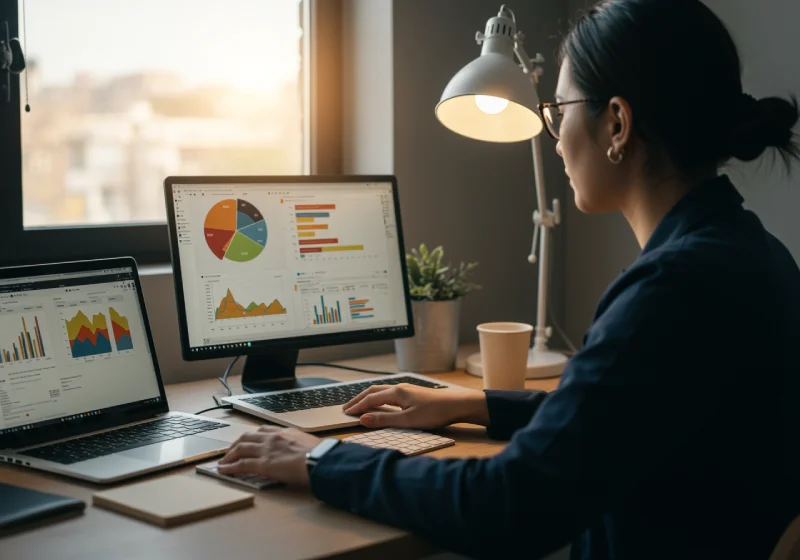Winning The Local Market: Local Seo In Internet Marketing Services
Are you a local business owner trying to attract more customers in your area? Do you want to increase your visibility online and stand out from your competitors? If so, then local SEO is the answer. Local SEO, or search engine optimization, is a digital marketing strategy that focuses on improving your online presence in specific geographic areas.
By optimizing your website and Google My Business profile, building local citations and backlinks, creating location-specific content, and measuring your results, you can win the local market and attract more potential customers to your business. In this article, we will guide you through the essential steps of implementing a successful local SEO campaign for internet marketing services. From understanding the importance of local SEO to analyzing its impact on your business's growth, we'll help you master the art of winning the local market with effective digital marketing strategies.
Understanding Local SEO and Its Importance
You may not realize it, but local SEO is crucial for your business if you want to rank higher in search results and attract more customers from your area. Local SEO refers to optimizing your website and online presence to appear in search results when someone searches for a product or service near their location. By focusing on the local market, you can improve your visibility online and generate more traffic to your website.
If you own a small business, local SEO is even more important because it allows you to compete with larger companies that have bigger marketing budgets. With the right strategies in place, you can outrank these big players and attract customers who are specifically looking for businesses like yours in their area. Local SEO also helps build trust with potential customers by showing them that you are an established business within their community.
To get started with local SEO, there are a few key steps you should take. One of the most important is optimizing your Google My Business profile. This free tool allows businesses to manage their online presence across Google's various services, including search results and maps. By claiming and verifying your listing on Google My Business, you can ensure that accurate information about your business appears when people search for related keywords or phrases in your area.
Optimizing Your Google My Business Profile
By optimizing your Google My Business profile, potential customers can easily find your business and learn important information such as hours of operation and contact information. This is a crucial component of local SEO that cannot be overlooked. To ensure that your profile is fully optimized, follow these three tips:
- Provide Accurate Information: Ensure that all the information you provide on your profile is accurate and up-to-date. Include your business name, address, phone number, website URL, and operating hours.
- Add Photos: Adding photos to your Google My Business profile can significantly increase user engagement with your listing. High-quality images of products or services offered by the business can help potential customers visualize what they would experience if they were to visit in person.
- Encourage Reviews: Positive reviews are essential for attracting new customers and building trust with existing ones. Encourage satisfied customers to leave reviews on your Google My Business page by providing excellent customer service and following up with a request for feedback after their visit.
Now that you have optimized your Google My Business profile, it's time to move onto the next step in boosting your local SEO - building local citations and backlinks.
Building Local Citations and Backlinks
To increase the visibility of your business in search results, it's important to focus on building local citations and backlinks. Local citations are mentions of your business name, address, and phone number (NAP) on other websites such as directories or review sites. These citations help to establish the credibility of your business and signal to search engines that you are a legitimate local entity.
Backlinks, on the other hand, are links from other websites that point to your website. When reputable websites link back to yours, search engines view this as a vote of confidence in the quality of your content. However, it's important to note that not all backlinks are created equal. It's better to have a few high-quality backlinks than many low-quality ones.
Building local citations and backlinks is an ongoing process that requires consistent effort. Start by listing your business on popular directories like Yelp or Yellow Pages. You can also reach out to other local businesses or organizations in your community for opportunities to collaborate or exchange links. By building a strong online presence through local citations and backlinks, you'll be able to improve your chances of ranking higher in local search results.
Creating relevant and location-specific content is another key aspect of winning the local market with SEO. By tailoring your content to appeal specifically to customers in your area, you'll be able to attract more traffic from people who are more likely to convert into paying customers. Keep reading for tips on how you can create effective location-based content for your website and social media channels.
Creating Relevant and Location-Specific Content
Creating content that is tailored to your specific location can help attract more local customers to your business. By creating blog posts, videos and social media updates that are focused on events or issues in your community, you can establish yourself as a trusted and knowledgeable resource for residents in your area. This type of content not only helps with search engine optimization but also builds trust with potential customers.
When creating location-specific content, it's important to consider the keywords and phrases people in your area are searching for. For example, if you operate a coffee shop in downtown Portland, Oregon, you might want to create content around topics like "best local cafes,""coffee shops near me,"or "Portland coffee culture."Using these types of keywords will make it easier for potential customers who are searching online for businesses like yours to find you.
Overall, creating relevant and location-specific content is an essential part of any successful local SEO strategy. Not only does it help improve your rankings on search engines like Google and Bing but it also helps build relationships with potential customers in your area. By providing valuable information about the community you serve, you'll establish yourself as an authority in your industry and increase the likelihood that local residents will choose to do business with you.
In order to ensure that all of these efforts are paying off, measuring and analyzing your local SEO results is crucial. There are a number of tools available that can help track things like website traffic, keyword rankings and customer engagement rates so that you can adjust your strategy accordingly. With the right approach and mindset towards improving your local SEO efforts over time – through quality content creation among other things – success should follow naturally!
Measuring and Analyzing Your Local SEO Results
If you want to see the impact of your efforts, it's essential that you measure and analyze your local SEO results. By doing so, you can determine what tactics are working and which ones need improvement. Here are some ways to measure and analyze your local SEO results:
- Track keyword rankings: Check where your website ranks for relevant keywords in your local area. This will give you an idea of how visible your website is on search engines.
- Monitor website traffic: Use Google Analytics or other web analytics tools to track the number of visitors to your site from different sources (organic search, social media, direct traffic). This will help you identify which channels are driving the most traffic.
- Analyze conversion rates: Measure how many visitors take a desired action on your site (such as filling out a contact form or making a purchase). This will help you understand whether your website is effectively converting visitors into customers.
- Monitor online reviews: Keep an eye on online reviews on sites like Yelp and Google My Business. Respond promptly to any negative reviews and encourage satisfied customers to leave positive feedback.
By measuring and analyzing these factors, you can make data-driven decisions about how to improve your local SEO strategy and win more business in your local market.
Frequently Asked Questions
How much does local SEO cost?
Local SEO costs vary depending on the scope and complexity of your campaign. On average, small businesses spend $500-$1,500 per month while larger businesses can spend $2,500-$5,000 or more for comprehensive local SEO services.
Can I do local SEO on my own or do I need to hire a professional?
Yes, you can do local SEO on your own, but it requires a good understanding of SEO principles and knowledge of the local market. Hiring a professional can save time and ensure optimal results.
How long does it take to see results from local SEO efforts?
You should expect to see results from your local SEO efforts within a few weeks to several months. The time frame largely depends on the competition in your market and the quality of your optimization efforts. Keep analyzing and optimizing to maintain success.
How often should I update my Google My Business profile?
"You should aim to update your Google My Business profile at least once a week. This ensures that your listing is accurate and up-to-date, which can lead to higher search rankings and greater visibility for your business."
Are there any specific industries or businesses that local SEO is not effective for?
Local SEO can benefit any business, but some may see limited results due to high competition or a lack of local search volume. It's best to consult with an expert to determine the effectiveness for your specific industry.
Conclusion
Congratulations on completing this article about local SEO and its importance in internet marketing services! By now, you should have a better understanding of what local SEO is, why it's crucial for businesses that rely on local customers, and how to optimize your online presence to rank higher in Google's search results.
Remember that the key to winning the local market is not just about getting more traffic but also providing value through relevant content, engaging with your audience on social media, and building trust with your customers. Don't forget to track your progress using tools like Google Analytics and adjust your strategy accordingly.
In today's digital age, having a strong online presence is a must for any business looking to succeed. By implementing the tips discussed in this article, you'll be well on your way to dominating the local search results and attracting more customers than ever before. Good luck!









